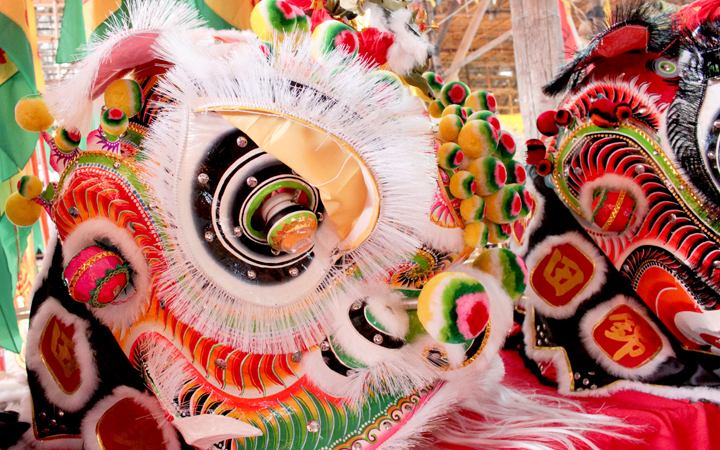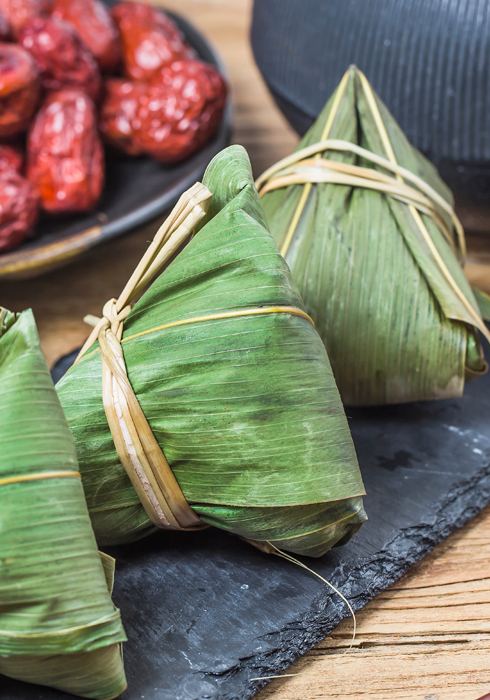Festivals and Holidays
The Fragrant Harbour, the Last Prize of the Empire, the City on the Hill, whatever you prefer to call it, Hong Kong is one of the most fascinating and exciting cities on the planet. Known as the city that never sleeps, it equates to the expression "time is money"
Spring Festival
(Chinese New Year)
The most important of the Chinese Festivals, is celebrated on the first day of the first moon of the traditional Lunar Calendar, usually late January or early February depending on the Lunar Calendar of that particular year. Celebrating the new Chinese New Year also marks the start of the plowing and sowing season. During this 3-day holiday most of the Chinese population spend time with their families—the most important gathering is a huge family feast on the eve of the New Year. Businesses are closed for 3-days and upwards of a week depending on the industry.
It is also a period of great decoration, with homes, buildings and shops all well decorated with wishes of good luck. It happens to be the noisiest of all holidays, with a massive fireworks show over Victoria Harbour on the 1st day of the New Year. As the majority of the Chinese population tend to travel during this period, it is wise to book holidays in advance. Schools are usually closed for a week.
National Day
Chinese National Day is October 1st - established by the Government in 1949 to celebrate the founding of the People’s Republic of China. This kicks off “Golden Week” in China - October 1 to October 7, but is of much less significance in Hong Kong. Similar to the Chinese New Year holiday the majority of the mainland Chinese population tends to travel during this period, so it is wise to book holidays in advance if you have business travel over this period.
Festivals in China are elaborate and vibrant affairs. Take part in a decorated dragon boat racing during the Duan Wu festival, watch impressive firework displays at Chinese New Year, or sample various moon cakes during the Mid Autumn Festival - Chinese festivals are a time to be with families and friends.
Birthday of BuddhaApril / May. Buddhist Temples.
Cheung Chau Bun Festivalwww.cheungchau.org
May.
Chinese Lunar New YearFeb. spectacular fireworks.
Dragon Boat FestivalJune.
Hungry GhostAug / Sept. Chinese Opera
Mid Autumn FestivalSeptember.
Lantern FestivalFebruary
For a brief overview of festival origins and the dates when they are celebrated, pick up a copy of the Hong Kong Tourist Association’s free brochure, "Events and Festivals".
Hong Kong Tourist Association
Tel: 2508 1234
www.hkta.org
More details visit:
www.discoverhongkong.com


| New Year | 1 day / 1 January |
|---|---|
| Chinese New Year (Spring Festival) | 3 days / February |
| Good Friday | 1 day / April |
| The day following Good Friday | 1 day / April |
| Easter Monday | 1 day / April |
| Ching Ming (Tomb sweeping) Festival | 1 day / April |
| International Labour Day | 1 day / 1 May |
| Buddha's Birthday | 1 day / May |
| Tuen Ng Festival (Dragon Boat) Festival | 1 day / June |
| Handover HKSAR Anniversary | 1 day / 1 July |
| Mid-Autumn (Moon) Festival | 1 day / September |
| National Holiday | 3 days / 1 October |
| Cheung Yeung Festival | 1 day / October |
| Christmas Day | 1 day / 25 December |
| Boxing Day | 1 day / 26 December |
Lantern Festival
Lantern Festival is held on the 15th day of the first month of the Lunar Year and celebrates the end of the Spring Festival and the first full moon of the New Year. Following a long tradition dating back to the Han Dynasty, people celebrate by carrying bright-colored lanterns through the streets and eating glutinous rice balls.
Ching Ming Festival
(Tomb Sweeping Day)
Tomb-Sweeping Day (Ching Ming) in Chinese means "clean and bright". In Western terms, this holiday is a Chinese Memorial Day. It is a time of sentimental remembrance of those who have passed on, by those who continue. Entire families take the day to clean and manicure their forebears' resting place.
Dragon Boat Festival
(Tuen Wu Festival or Duan Wu Day of Right Midday)
Dragon Boat Festival (Duan Wu day of Right mid-day) is the 5th day of the 5th month of the lunar year. The story behind this unique celebration dates back more than 2000 years ago centering on a patriotic court official named Qu Yuan. Qu tried to warn the emperor of an increasingly corrupt government but failed. In a last desperate protest, he threw himself into the river and drowned. Later, Qu 's sympathizers jumped into boats beat the water with their oars and made rice dumplings wrapped in reed leaves (Zongzi) and scattered them into the River in the hope that fish would eat them instead of Qu's body. Today, people eat Zong Zi and organize boat race to make the occasion.
Mid-Autumn Festival
Mid-Autumn Festival is held on the 15th day of the eighth lunar month usually around September each year. Celebrating the full moon people eat moon cakesl Moon cakes are usually a sweet pastry with a variety of fillings available, most commonly including egg yolk and red bean paste. It is also a time where boxed moon cakes' are commonly given and received as gifts. This is one of the most celebrated festivals amongst westerners who go to the beaches for sunset and sundowners with children armed with lanterns.

